Highlights of 2024
Behold: the essays I most enjoyed writing this year.
Thank you for reading The Garden of Forking Paths. I began writing here as a bit of an experimental creative project, just chasing ideas that fascinated me. Now there are more than 35,000 of you in 168 countries. I’m grateful you take the time to read my work. In no particular order, here are my favorite essays I wrote this year. Happy New Year!
Also, in case you’re interested, here’s a recent video I recorded for Big Think on some of the key ideas in my book, FLUKE: Chance, Chaos, and Why Everything We Do Matters.
Depending on which scientist you ask, Homo sapiens emerged between 200,000 and 315,000 years ago. Let’s split the difference, go with 257,000, and say that there have been about 9,500 generations of humans (the average generation throughout human history lasts 26.9 years).
Our way of life was dominated by hunting and gathering for 9,100 of those 9,500 generations—96 percent of the existence of our species.
Then, about 10,000 years ago, agrarian societies formed. Farming replaced hunting and gathering. (It was disastrous for our health). In the 18th century, society shifted again, toward industrialization. And now, in the last thirty years or so, we’ve ushered in another shift, with computerization, the internet, and artificial intelligence, a society defined by interconnected information and an unprecedented flow of ideas.
If the history of humanity were condensed into a single 24-hour day, this is roughly what it would look like:
The Hunter-Gatherer Age—23 hours and 3 minutes
The Agrarian Age—55 minutes and 32 seconds
The Industrial Age—1 minute and 17 seconds
The Information Age—11 seconds
More than half of the world’s population is under the age of 30, meaning that more than half of us have only lived in those 11 seconds—an era that is, without question, the weirdest period in human history.
Sadly, so much of our discourse around intelligence and stupidity gets hijacked by pseudoscience, racism, and debates over whether arbitrary measurements like IQ are valid. We ignore more interesting questions around intelligence and stupidity that we can learn not from ourselves, but from other species. In particular:
What, specifically, does it mean to be “intelligent?” What do we mean when we say that humans and chimps and dolphins and crows are intelligent?
Why did some species—including us—become smart, while others didn’t?
Why is stupidity still so widespread in humans?
Pondering these questions requires going on a bit of a wild ride, exploring fascinating animal worlds from chimpanzees to cephalopods, as we begin to understand our own cleverness—and stupidity—through the eyes of an octopus, the closest thing to alien intelligence on Earth.
Samuel Pepys, the English diarist who opened a window into daily life in 17th century London, was an early adopter of smartphone addiction.
This was an extraordinary feat, given that the iPhone wouldn’t be invented for another 304 years after Pepys died in 1703. But he, like so many of us, couldn’t resist the dopamine hit that coursed through his veins as he relentlessly checked his device, one hundred times per afternoon. On May 13, 1665, Pepys wrote:
But, Lord! To see how much of my old folly and childishnesse hangs upon me still that I cannot forbear carrying my watch in my hand in the coach all this afternoon, and seeing what o’clock it is one hundred times; and am apt to think with myself, how could I be so long without one; though I remember since, I had one, and found it a trouble, and resolved to carry one no more about me while I lived.
It was, of course, not a smartphone, but a pocket watch of which Pepys spoke, as he chronicled his familiar relationship with newfangled technology: an irresistible urge to check it constantly, a wondrous sense of how he managed to live without it previously, and then, a reckoning, in which he decries the device, resolving to never carry one again.
To the ghost of the long-dead Mr. Pepys, I say: amen…
…But we are now in a moment of social reckoning in which we, like Pepys and his pocket watch, question whether the technology is good for us. Books that chronicle the poisoning of young minds grace bestseller lists. We try, but fail, to “unplug.” There are now even devices to contain our devices, lock boxes that physically block you from accessing the dopamine that lurks, beckoning to you, from your pocket.
In 1637, Mabel Gray had a problem. Her spoons, one of her most coveted possessions—handmade, valuable, irreplaceable—had disappeared.
With no police force in London, no source of authority to deal with the uncertainty of her calamity, she turned to the obvious choice: service magicians, the “cunning folk” who could employ their uncanny powers to help her track down the missing spoons.
“Thus began a long journey across London,” explains the historian Tabitha Stanmore, “during which Mabel visited some of the seediest areas of the capital and met several wizards, in the hope of getting back what was hers.”
Eventually, for the price of a few shillings and some wine, a service magician named “Mr. Tunn” took the case, eventually informing her that she would get the spoons back, as they would miraculously return “in the same place from whence they were taken.” Four centuries later, we still don’t know whether Mabel found her spoons, a mystery forever lost to time.
But what we can know is that the service magicians of the medieval period—the cunning folk who professed an ability to harness magical forces to help others—were a more rational and effective form of recourse to manipulate the world to our whims than the modern multi-billion dollar industry of manifesting, the “laws of attraction,” and costly crystals allegedly infused with magical forces.
If we can understand why Mabel’s appeal to an avowed medieval magician could possibly be rational, we can more effectively probe our innate human impulse to control the world through superstitious schemes—and understand how and why our species has shifted its relationship to the supernatural realm with destructive and dangerous myths of modernity that too often prey on the vulnerable.
It was Saturday night and I was dancing in a sea of thousands of scantily clad ravers. The crowd was jubilantly writhing together—fueled, them not me, by a healthy dose of ketamine and cocaine. Euphorically, carefree, we watched a scruffy man in his underwear gyrate around stage, mixing sick beats while crooning about a flamingo pecking out a child’s eyeball.1 Behind me, a man was triumphantly waving a handcrafted black flag depicting the cartoon chef rat, Ratatouille, with a caption that read: “I don’t want to cook anymore. I want to die.”
Here I was, anthropologist on duty, at one the largest and most notorious music festivals in the world—Boomtown—to try to learn about an oft-overlooked subset of our species, Homo ecstasticus, and what they can teach us not just about why modern society is broken, but how to fix it.
In 2028, if all goes according to plan, a six foot five narcoleptic scientist with a bushy white beard will resurrect the first living woolly mammoth in 4,000 years. And that mammoth—if the science works—may soon be lumbering, in all its hairy glory, across the frozen plains of North Dakota.
This is the story of the science, the ethics, and the risks and rewards of the emerging field of de-extinction—the revival of species that no longer exist.
Humans may soon be able to bring species back from the dead. But should we?
I’m sitting in the hidden inner sanctum of the British Museum, as one of the most interesting men in the world kicks his legs out, strokes his frazzled, footlong cloud-white beard, and twirls slowly in his chair.
His wizard-like appearance matches his ability to conjure wit and whimsy into every sentence, all as he deciphers long-forgotten spells, translates ghost stories, and tries to build the original Noah’s Ark, which, as he’s discovered, predates the Biblical flood story by a thousand years. His craft—derived not from magic but from meticulous research—is a knack for resurrecting the minds of those most distant ancestors, our most ancient relatives.
This peculiar scholar sitting before me is Irving Finkel, a hidden gem of humanity, who spends his days teasing meaning from antediluvian clay as he grapples with some of the biggest questions about human nature and the deepest mysteries of our past. Are our oldest ancestors like us? Is there something universal about humanity that spans thousands upon thousands of years? Or, when we part the mists of time, does something unrecognizably foreign emerge from the oldest surviving records of our species?
Finkel, you see, is an ambassador for those fascinating but too often forgotten people: those humans who first invented how to write.1 And what they left us is one of the richest and most electrifying inheritances imaginable.
I’m well aware that modern life is, for most people, too busy. Thank you for sharing some of your most precious commodity—time—to engage with my ideas and my writing. It has been an absolute joy to write for you this year. May you have a very Happy New Year!


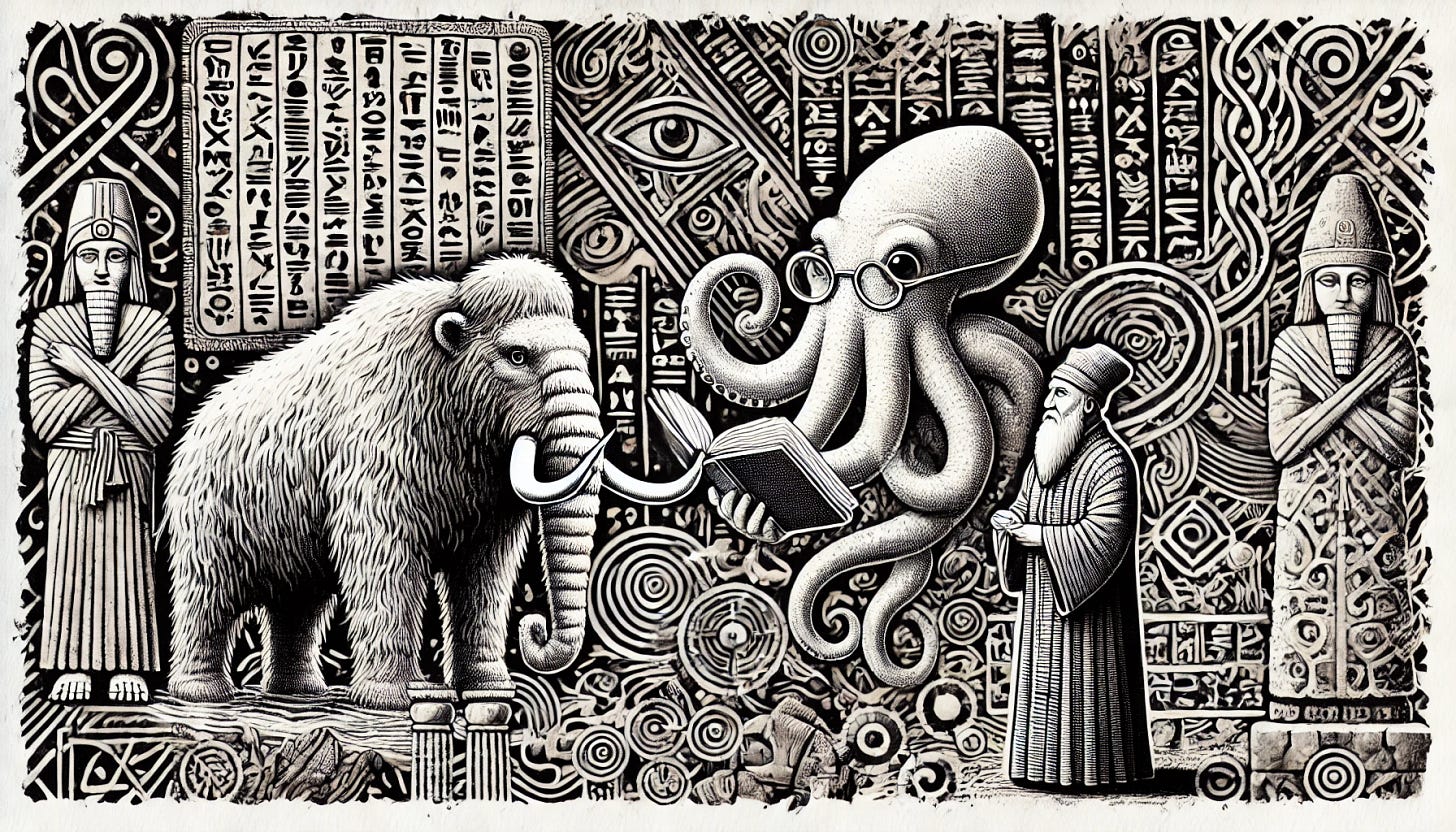

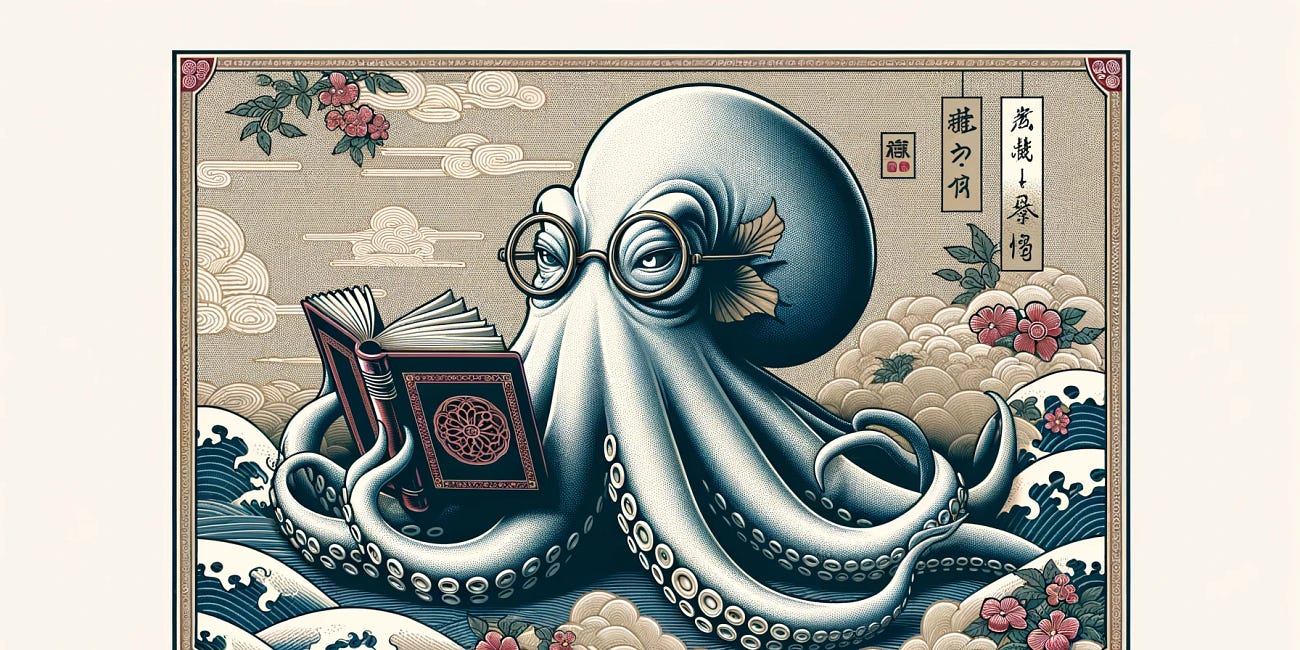
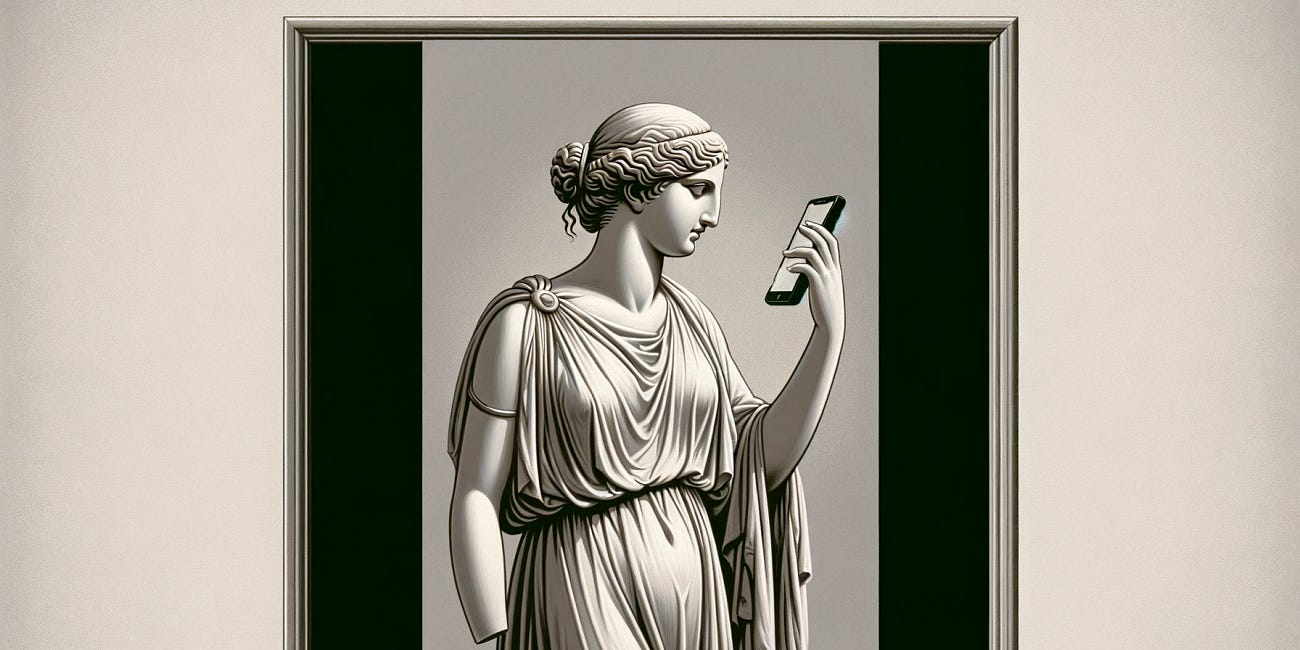

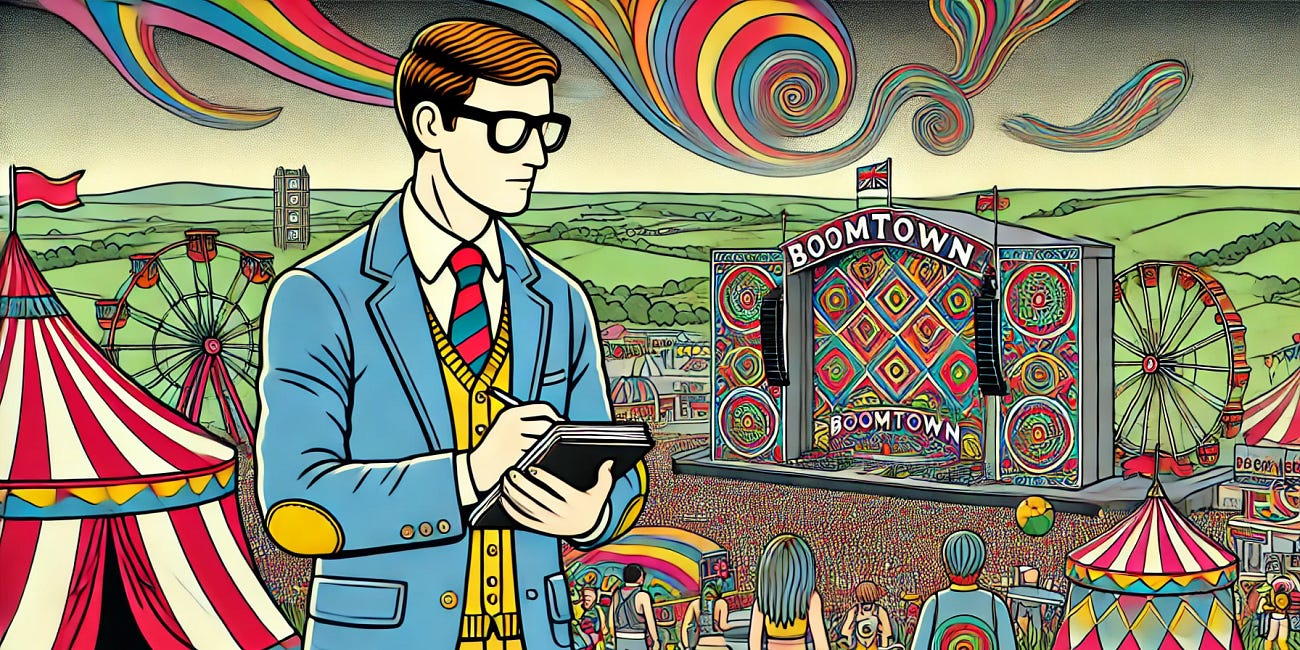
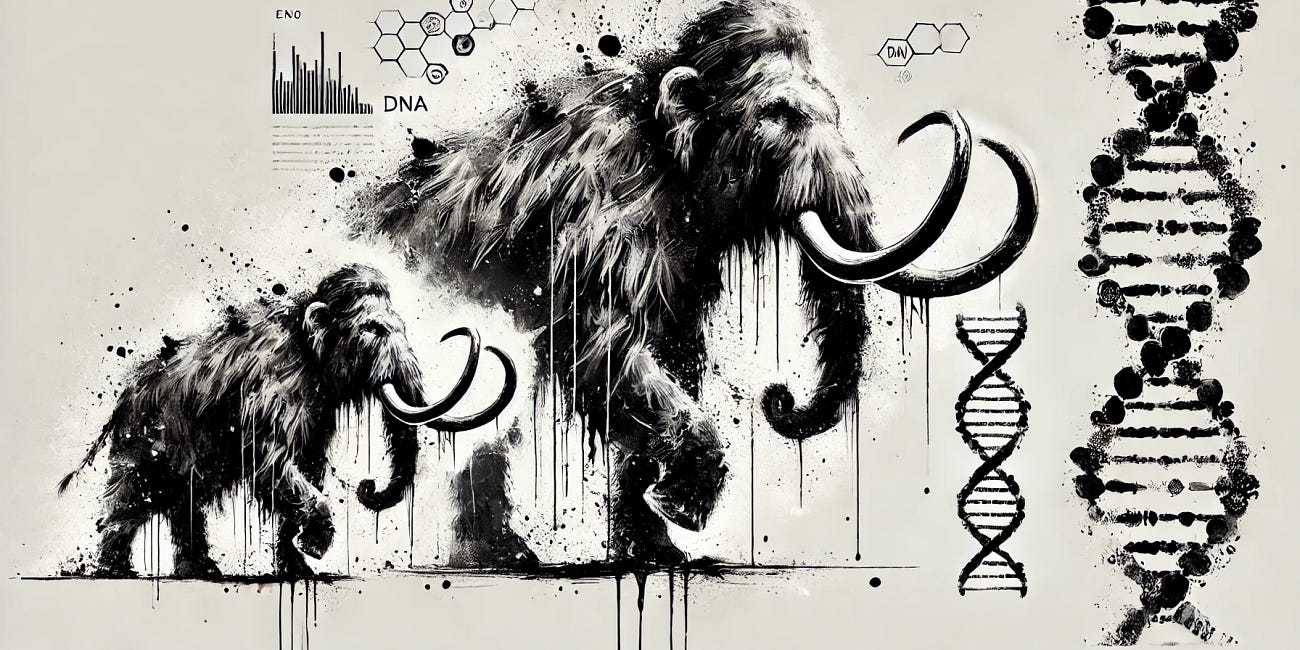

Hi Brian and Happy New Year! Thanks for all the great essays over the last year. They lead me to buy a copy of Fluke (finished it yesterday) and buy a copy of The Black Swan which you mentioned (reading now) and Corruptible. Your Substack is at the top of my reading list.
Happy New Year Brian. I am very grateful for your inquisitive mind and crafty writing. I am looking forward to more such delight in 2025. Cip